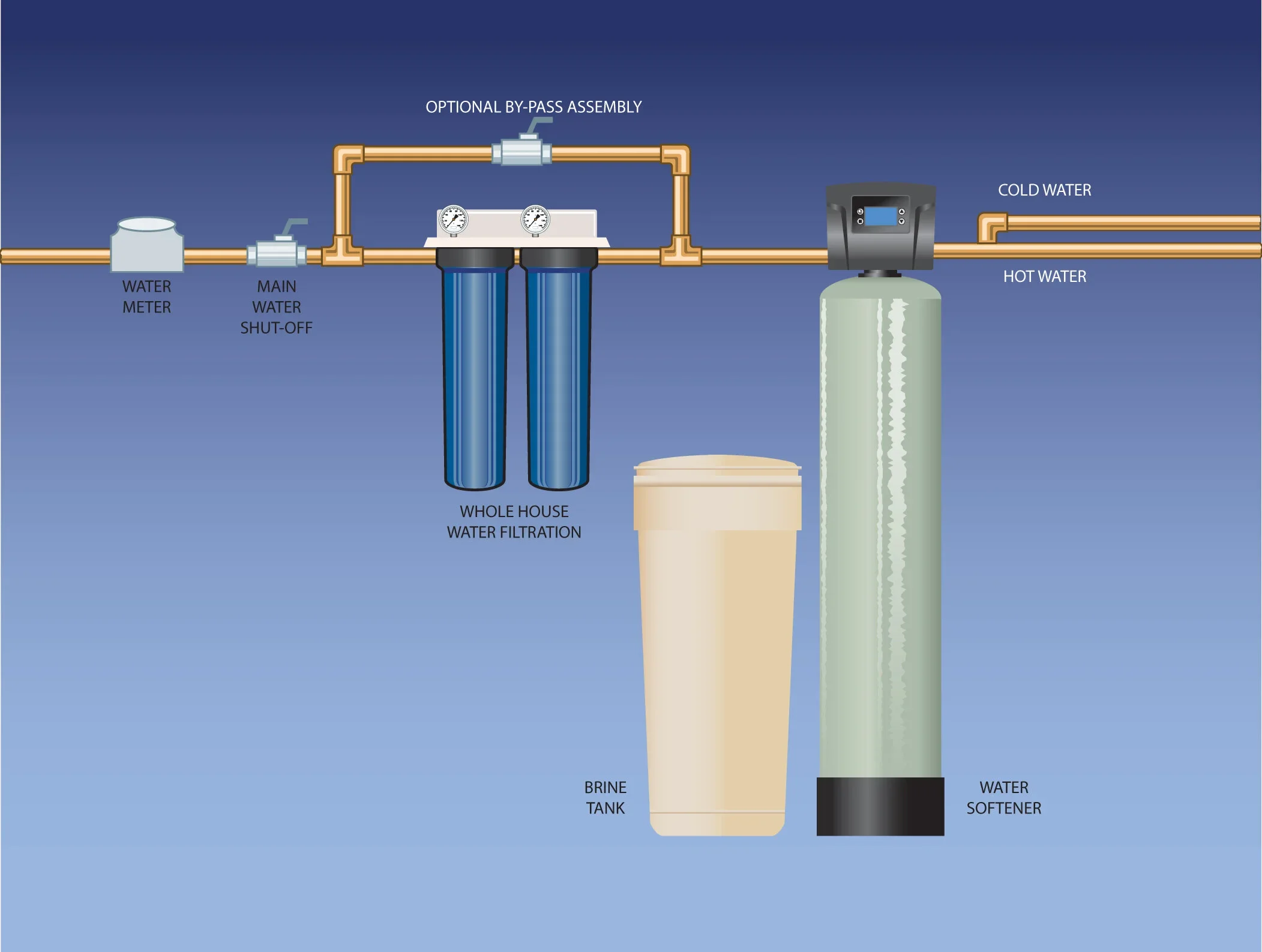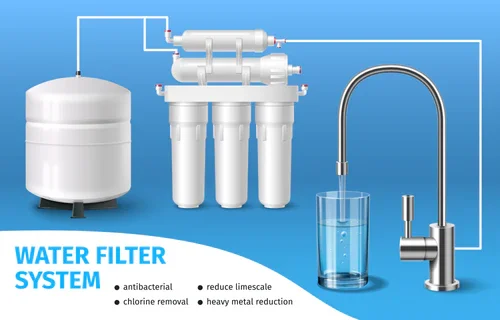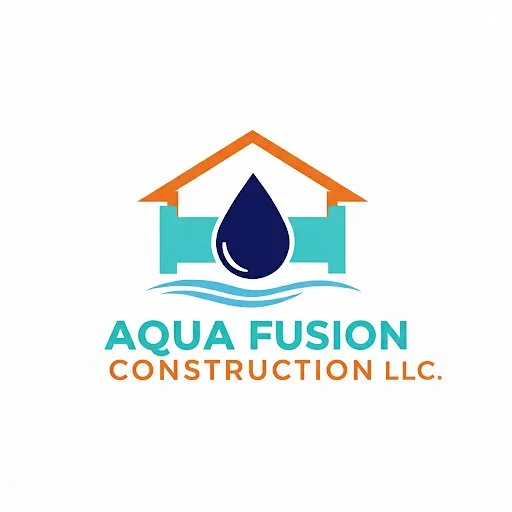 Image 1 of 3
Image 1 of 3

 Image 2 of 3
Image 2 of 3

 Image 3 of 3
Image 3 of 3




Water filtration installation
Why Water Filtration Installation is Necessary
Water filtration systems are installed to address various water quality issues, driven by the following needs:
1. Contaminant Removal:
• Tap water may contain impurities like chlorine, lead, pesticides, nitrates, bacteria, or heavy metals (e.g., arsenic, manganese), which affect taste, odor, or safety.
• Example: Well water with high iron content can cause staining, while city water may have chlorine or PFAS, posing health risks.
2. Health Protection:
• Contaminants like lead or bacteria can harm health, particularly for children, pregnant women, or pets. Filtration ensures safe drinking, cooking, and bathing water.
• Example: A family noticing metallic-tasting water may need a filter to remove lead or iron.
3. Hard Water Issues:
• Hard water (high in calcium and magnesium) causes scale buildup, damaging pipes, appliances, and fixtures, and dries out skin and hair.
• Example: Spotty dishes or soap scum in showers indicate hard water, which a filtration or softening system can address.
4. Aging Plumbing:
• Old pipes (e.g., lead or galvanized steel) can leach contaminants, requiring filtration to ensure safe water until repiping is feasible.
• Example: A pre-1986 home with lead pipes needs a filter to protect residents from lead exposure.
5. Improved Taste and Odor:
• Chlorine, sulfur, or sediment can make water taste or smell unpleasant, affecting drinking and cooking.
• Example: A sulfur smell in well water requires a filter to restore fresh-tasting water.
6. Appliance Longevity:
• Hard water or sediment shortens the lifespan of dishwashers, water heaters, and washing machines by causing scale or corrosion.
• Example: A water heater failing prematurely due to mineral buildup can be protected by a whole-house filter.
7. Environmental and Cost Savings:
• Filtering tap water reduces reliance on bottled water, cutting plastic waste and costs.
• Example: A household spending $500/year on bottled water can save money with an under-sink filter.
8. Renovations or Home Resale:
• Installing a filtration system during a kitchen or bathroom remodel enhances functionality and meets modern water quality standards.
• A filtration system adds value for buyers and ensures compliance with health-focused inspections.
• Example: A new whole-house filter can boost a home’s appeal in a competitive market.
Types of Water Filtration Systems
The type of system depends on the water source, contaminants, and household needs. Common options include:
1. Point-of-Use (POU) Systems:
• Under-Sink Filters: Treat water for specific faucets (e.g., kitchen sink for drinking/cooking). Examples include reverse osmosis (RO) or carbon filters.
• Countertop/Faucet-Mount Filters: Portable, easy-to-install units for single-tap use (e.g., Brita or PUR).
• Use Case: Ideal for renters or small households needing clean drinking water.
2. Whole-House (Point-of-Entry) Systems:
• Installed at the main water line, filtering all water for drinking, bathing, and appliances.
• Types include carbon filters, sediment filters, UV sterilizers, or reverse osmosis for comprehensive purification.
• Use Case: Best for homes with hard water, well water, or widespread contaminants.
3. Water Softeners:
• Remove calcium and magnesium to prevent scale buildup, often paired with filtration systems.
• Salt-free conditioners (e.g., LifeSource or iSpring) are eco-friendly alternatives.
• Use Case: Essential in areas with hard water to protect plumbing and appliances.
4. Specialized Systems:
• Reverse Osmosis (RO): Removes up to 99% of contaminants (e.g., lead, PFAS, arsenic) for high-purity drinking water.
• UV Sterilization: Eliminates bacteria and viruses, ideal for well water.
• Use Case: Homes with specific contaminants like nitrates or bacteria.
Benefits of Water Filtration Installation
Installing a water filtration system offers numerous advantages:
1. Improved Water Quality:
• Removes contaminants like chlorine (97% reduction with carbon filters), lead, bacteria, or PFAS, ensuring safe drinking and bathing water.
• Enhances taste and odor, eliminating metallic or sulfur smells.
• Example: An RO system provides 99% impurity-free drinking water.
2. Health Protection:
• Reduces exposure to harmful substances (e.g., lead, nitrates), protecting children, pets, and vulnerable populations.
• UV systems eliminate 99.99% of bacteria and viruses, ideal for well water.
• Example: A filter removes arsenic, ensuring compliance with health standards.
3. Appliance and Plumbing Longevity:
• Whole-house filters or softeners prevent scale buildup, extending the life of water heaters, dishwashers, and pipes.
• Example: A salt-free conditioner reduces limescale, saving $500+ in appliance repairs.
4. Cost Savings:
• Eliminates bottled water costs ($200–$500/year for a family).
• Reduces water bills by preventing leaks from scale-damaged pipes.
• Example: A $1,000 whole-house system can save $300 annually on bottled water and repairs.
5. Environmental Benefits:
• Reduces plastic bottle waste (up to 1,500 bottles/year per household).
• Eco-friendly systems (e.g., salt-free conditioners) minimize chemical or salt discharge.
• Example: An RO system cuts plastic waste while providing pure water.
6. Aesthetic and Comfort Improvements:
• Filtered water improves skin and hair health by reducing chlorine or hard water exposure.
• Cleaner dishes and laundry due to softened water.
• Example: A whole-house filter eliminates soap scum in showers.
7. Increased Home Value:
• A filtration system appeals to buyers, especially in areas with known water issues, and meets modern health standards.
• Example: A whole-house system can add $500–$2,000 to a home’s resale value.
8. Warranty and Reliability:
• Systems come with warranties (1–10 years, sometimes lifetime for components), covering parts or labor.
• Example: A 3-year parts warranty on a $1,500 system ensures peace of mind.
Why Water Filtration Installation is Necessary
Water filtration systems are installed to address various water quality issues, driven by the following needs:
1. Contaminant Removal:
• Tap water may contain impurities like chlorine, lead, pesticides, nitrates, bacteria, or heavy metals (e.g., arsenic, manganese), which affect taste, odor, or safety.
• Example: Well water with high iron content can cause staining, while city water may have chlorine or PFAS, posing health risks.
2. Health Protection:
• Contaminants like lead or bacteria can harm health, particularly for children, pregnant women, or pets. Filtration ensures safe drinking, cooking, and bathing water.
• Example: A family noticing metallic-tasting water may need a filter to remove lead or iron.
3. Hard Water Issues:
• Hard water (high in calcium and magnesium) causes scale buildup, damaging pipes, appliances, and fixtures, and dries out skin and hair.
• Example: Spotty dishes or soap scum in showers indicate hard water, which a filtration or softening system can address.
4. Aging Plumbing:
• Old pipes (e.g., lead or galvanized steel) can leach contaminants, requiring filtration to ensure safe water until repiping is feasible.
• Example: A pre-1986 home with lead pipes needs a filter to protect residents from lead exposure.
5. Improved Taste and Odor:
• Chlorine, sulfur, or sediment can make water taste or smell unpleasant, affecting drinking and cooking.
• Example: A sulfur smell in well water requires a filter to restore fresh-tasting water.
6. Appliance Longevity:
• Hard water or sediment shortens the lifespan of dishwashers, water heaters, and washing machines by causing scale or corrosion.
• Example: A water heater failing prematurely due to mineral buildup can be protected by a whole-house filter.
7. Environmental and Cost Savings:
• Filtering tap water reduces reliance on bottled water, cutting plastic waste and costs.
• Example: A household spending $500/year on bottled water can save money with an under-sink filter.
8. Renovations or Home Resale:
• Installing a filtration system during a kitchen or bathroom remodel enhances functionality and meets modern water quality standards.
• A filtration system adds value for buyers and ensures compliance with health-focused inspections.
• Example: A new whole-house filter can boost a home’s appeal in a competitive market.
Types of Water Filtration Systems
The type of system depends on the water source, contaminants, and household needs. Common options include:
1. Point-of-Use (POU) Systems:
• Under-Sink Filters: Treat water for specific faucets (e.g., kitchen sink for drinking/cooking). Examples include reverse osmosis (RO) or carbon filters.
• Countertop/Faucet-Mount Filters: Portable, easy-to-install units for single-tap use (e.g., Brita or PUR).
• Use Case: Ideal for renters or small households needing clean drinking water.
2. Whole-House (Point-of-Entry) Systems:
• Installed at the main water line, filtering all water for drinking, bathing, and appliances.
• Types include carbon filters, sediment filters, UV sterilizers, or reverse osmosis for comprehensive purification.
• Use Case: Best for homes with hard water, well water, or widespread contaminants.
3. Water Softeners:
• Remove calcium and magnesium to prevent scale buildup, often paired with filtration systems.
• Salt-free conditioners (e.g., LifeSource or iSpring) are eco-friendly alternatives.
• Use Case: Essential in areas with hard water to protect plumbing and appliances.
4. Specialized Systems:
• Reverse Osmosis (RO): Removes up to 99% of contaminants (e.g., lead, PFAS, arsenic) for high-purity drinking water.
• UV Sterilization: Eliminates bacteria and viruses, ideal for well water.
• Use Case: Homes with specific contaminants like nitrates or bacteria.
Benefits of Water Filtration Installation
Installing a water filtration system offers numerous advantages:
1. Improved Water Quality:
• Removes contaminants like chlorine (97% reduction with carbon filters), lead, bacteria, or PFAS, ensuring safe drinking and bathing water.
• Enhances taste and odor, eliminating metallic or sulfur smells.
• Example: An RO system provides 99% impurity-free drinking water.
2. Health Protection:
• Reduces exposure to harmful substances (e.g., lead, nitrates), protecting children, pets, and vulnerable populations.
• UV systems eliminate 99.99% of bacteria and viruses, ideal for well water.
• Example: A filter removes arsenic, ensuring compliance with health standards.
3. Appliance and Plumbing Longevity:
• Whole-house filters or softeners prevent scale buildup, extending the life of water heaters, dishwashers, and pipes.
• Example: A salt-free conditioner reduces limescale, saving $500+ in appliance repairs.
4. Cost Savings:
• Eliminates bottled water costs ($200–$500/year for a family).
• Reduces water bills by preventing leaks from scale-damaged pipes.
• Example: A $1,000 whole-house system can save $300 annually on bottled water and repairs.
5. Environmental Benefits:
• Reduces plastic bottle waste (up to 1,500 bottles/year per household).
• Eco-friendly systems (e.g., salt-free conditioners) minimize chemical or salt discharge.
• Example: An RO system cuts plastic waste while providing pure water.
6. Aesthetic and Comfort Improvements:
• Filtered water improves skin and hair health by reducing chlorine or hard water exposure.
• Cleaner dishes and laundry due to softened water.
• Example: A whole-house filter eliminates soap scum in showers.
7. Increased Home Value:
• A filtration system appeals to buyers, especially in areas with known water issues, and meets modern health standards.
• Example: A whole-house system can add $500–$2,000 to a home’s resale value.
8. Warranty and Reliability:
• Systems come with warranties (1–10 years, sometimes lifetime for components), covering parts or labor.
• Example: A 3-year parts warranty on a $1,500 system ensures peace of mind.

